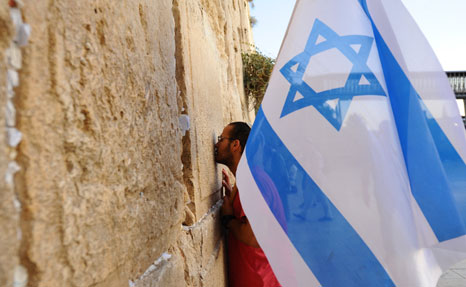Towards a New Covenant on Religion and State in Israel

After years of struggles over issues related to religion and state, we hereby agree to adopt a new approach, which will create a covenant to provide a new system of arrangements and agreements to strengthen the link between the Israeli public and the Jewish identity of the State of Israel.

Flash 90
This covenant will reflect an apolitical approach, based on a broad common denominator and on consensus, thus fostering social solidarity among diverse groups, both within Israeli society and with the Jewish people the world over. The current agreements and arrangements, which have been in place since the early years of the state, are commonly known as the “status quo.” They have eroded over the years, and lost much of their relevance. New arrangements and new agreements better suited to the current Israeli reality must be put in place.
The following are the fundamental guidelines proposed for such a covenant, and enjoy broad consensus among the Zionist majority in Israel:
a) Israel’s identity as a Jewish and democratic state must be fortified by reaching consensus and creating a sense of solidarity among different groups within Israeli society and with the Jewish people worldwide, rather than by unilateral coercion.
b) The public space should be designed to accommodate all population groups, both those wishing to continue to receive religious services, and those wishing to avoid being subject to religious coercion; and agreements must focus on the common good and on areas of consensus.
c) A distinction should be made between issues of Jewish-Israeli identity, including provision of religious services and the public space, and those relating to the ultra-Orthodox community and its integration into Israeli society.
The government to be formed after the upcoming elections should act to maintain the Jewish-democratic character of the State of Israel, and to adapt the current arrangements and agreements on religion and state to the contemporary realities of Israeli life.
Reform is particularly urgent with regard to the following six issues:
1) A religious establishment that reflects the needs of Israeli society: We agree to act towards ensuring adequate representation of the entire Israeli/Jewish public in the country’s religious institutions, including the Chief Rabbinate, municipal rabbinates, local religious councils, and religious courts. This includes equal funding for religious services for all those providing and receiving religious services.
2) Freedom of choice on marriage and divorce: We agree to act towards changing marriage and divorce arrangements in Israel, so that all couples will be able to choose how they formalize their status. It is also agreed to promote a comprehensive solution to the problem of “divorce refusal”-- men refusing to sign a divorce agreement (gett) and whose wives remained “chained” to them (agunot); and to address gender inequality and the marginalization of women.
3) Shabbat and Jewish holidays: We will act to ensure that the unique character of Shabbat as a day of rest is preserved in the public domain, and to protect the rights of workers for a day of rest on Shabbat. To this end, the government should work to introduce arrangements for transportation and for cultural and leisure activities on Shabbat on the municipal level, tailored to the character and needs of different communities, and based on shared and agreed-upon fundamental guidelines.
4) Conversion: We agree that local rabbis and heads of yeshivas should also be able to conduct conversions, while maintaining the existing status-quo governing the recognition of conversion in Israel of non-orthodox conversion abroad for the purposes of recognition and registration as Jews in Israel.
5) Kashrut (Dietary laws): We agree to work towards opening up the kashrut market, currently under the exclusive jurisdiction of the Chief Rabbinate, to other kashrut service providers, while continuing to acknowledge the Chief Rabbinate as the recognized kashrut service provider in all state institutions.
6) Israel and the Diaspora: It is agreed that the State of Israel, as a Jewish state, must act to strengthen its links with Diaspora Jewry, and must aspire to ensure the representation of the entire Jewish people—including all its diverse groups and communities—when setting policies that affect the lives of Diaspora Jews, including on the administration of sites that are holy to all Jews everywhere.
